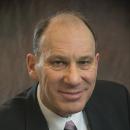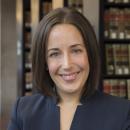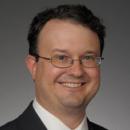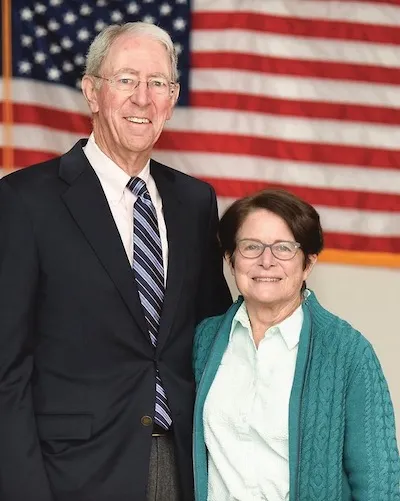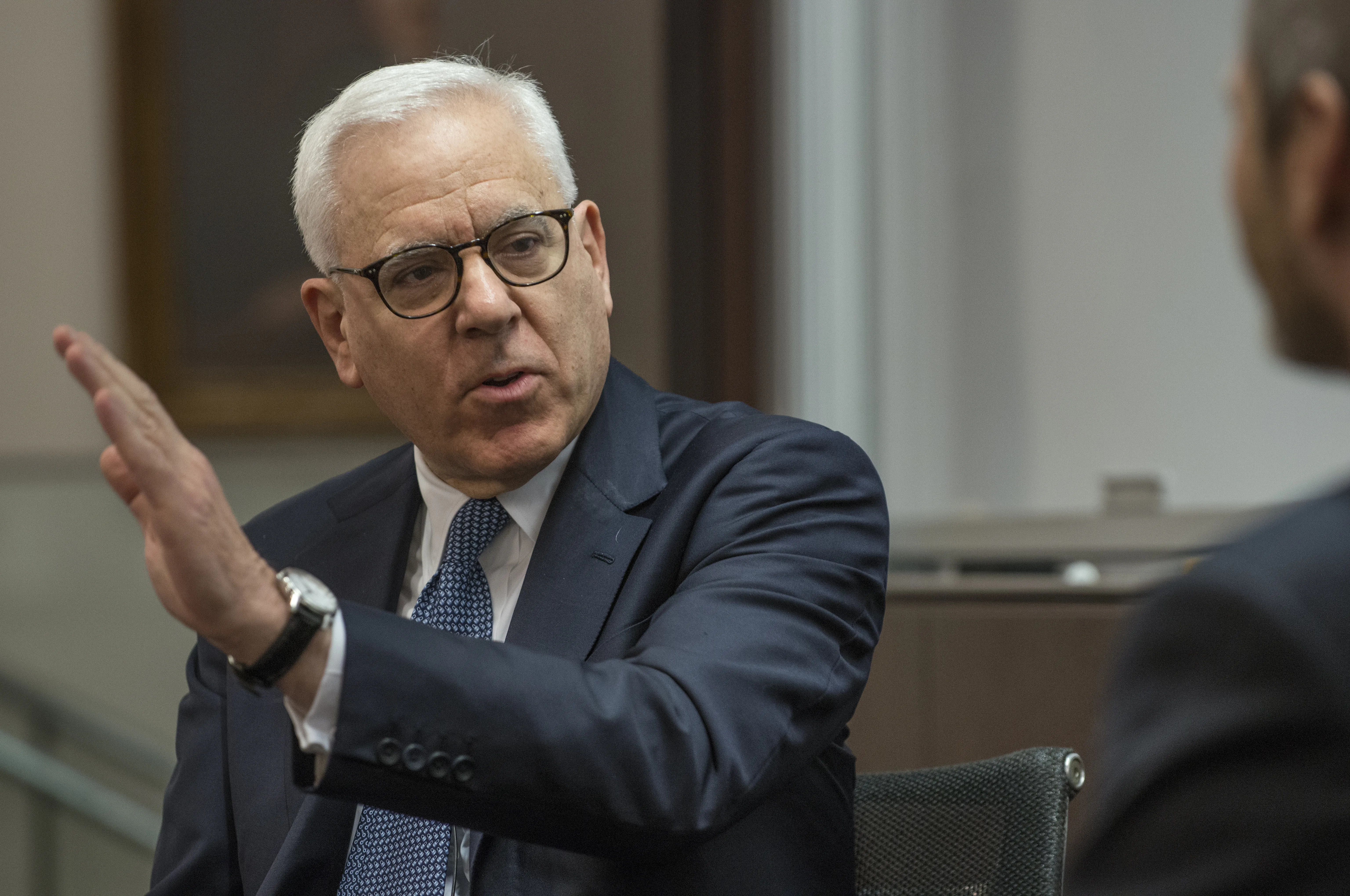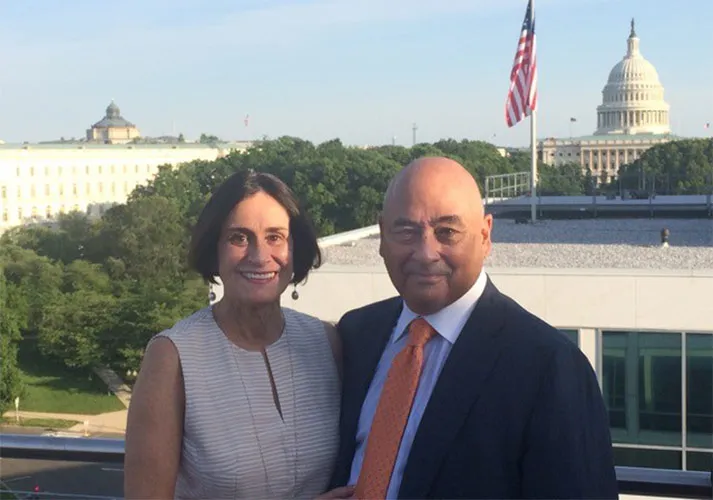Law School, Jenner & Block Partner to Launch Supreme Court and Appellate Clinic
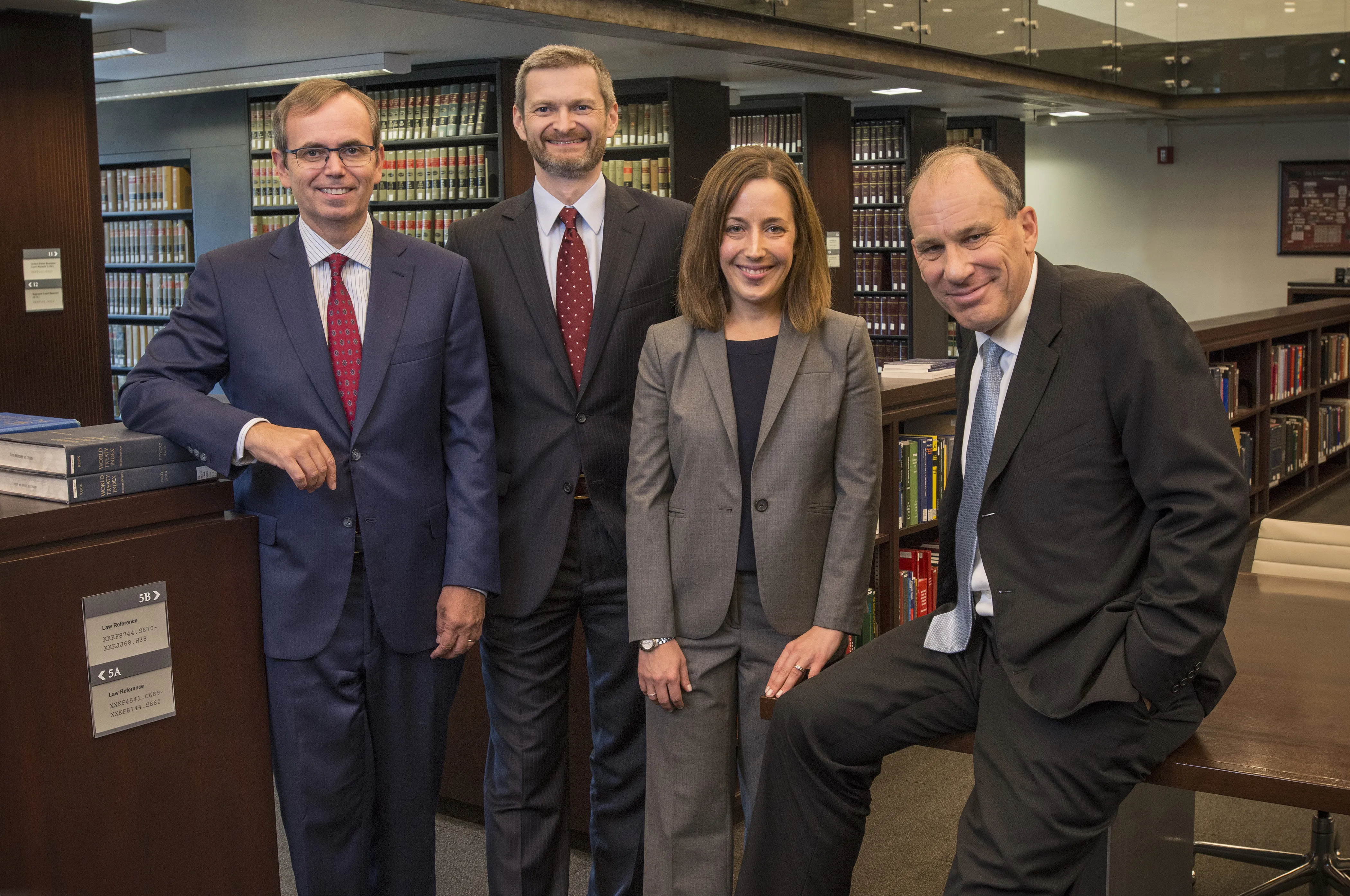
The University of Chicago Law School has partnered with Jenner & Block to launch a new clinic that gives students the opportunity to work with experienced litigators on US Supreme Court and federal appellate cases, adding a new layer to the Law School’s clinic offerings and underscoring a commitment to providing high-level, real-world experience.
The Jenner & Block Supreme Court and Appellate Clinic will be led by noted Supreme Court scholar David A. Strauss, the Gerald Ratner Distinguished Service Professor of Law, who has argued 18 cases before the Court, and two attorneys from Jenner & Block’s Appellate and Supreme Court Practice, which argued six cases before the high court this term and is recognized as one of the finest appellate groups in the United States. Assistant Clinical Professor Sarah M. Konsky, ’04, will supervise students on a day-to-day basis as the clinic’s director. She joined the Law School earlier this year from Sidley Austin, where she was a partner focusing on appellate and other litigation.
“This is a truly exceptional experience for our students, and we are grateful to Jenner & Block for partnering with us to teach advocacy at the very highest level,” said Dean Thomas J. Miles, the Clifton R. Musser Professor of Law and Economics. “The leaders of this clinic are experienced litigators who have argued before our nation’s highest court, as well before federal and state appellate courts. Our students will surely benefit from their tremendous expertise.”
The Supreme Court clinic represents a strong partnership with Jenner & Block, which has pledged financial, mentoring, and teaching support. Michael A. Scodro, who served as Illinois solicitor general between 2007 and 2014, and Matthew S. Hellman, who has led litigation teams on dozens of appellate matters, will play an active role in working with students. Scodro, who is also a Law School lecturer, and Konsky will co-teach a Supreme Court and Appellate Advocacy seminar, a clinic prerequisite.
“Our goal with the Clinic is to educate and train the next generation of extraordinary appellate advocates and continue the tradition of helping clients handle their most important litigation problems—not just through the trial but all the way through the appeal,” said Jenner & Block Partner Craig C. Martin, chair of the firm’s Litigation Department and a member of the Law School’s Visiting Committee.
Added Strauss: “Supreme Court litigation is in many ways unlike litigation in any other court, and the clinic will give students a chance to participate in Supreme Court advocacy—formulating arguments, working out strategy, drafting briefs—and in appellate litigation in other courts.” Strauss, who co-edits the Supreme Court Review with professors Geoffrey Stone and Dennis Hutchinson, was an assistant solicitor general of the United States before joining the Law School in 1985.
The clinic opened for the spring term with four Law School students and is expected eventually to serve up to 12 per term. In fact, the clinic is already counsel in a significant constitutional case that will be argued before the Supreme Court in the October 2016 term. In June, the students also filed an amicus brief in Pena-Rodriguez v. Colorado, a case that centers on whether a rule prohibiting jurors from impeaching their verdicts constitutionally may be applied to bar evidence of racial bias.
Although students will not be able to appear before the Supreme Court, which does not permit any student to argue before the Court, they will play an active role in all briefing, from petitions for certiorari to merits cases, and “moot” oral arguments. They also will have the opportunity to appear before the Seventh Circuit Court of Appeals.
“One of our primary goals is to give our students valuable Supreme Court and appellate advocacy experience, through hands-on work in actual cases,” Konsky said. “Our students learn from doing—whether that’s formulating the strategy for the case, or evaluating the strengths and weaknesses of potential arguments, or writing a challenging brief. The clinic gives the students the chance to apply what they have learned in their doctrinal classes. But it also gives them the opportunity to hone a very different and important skillset—advocating effectively for their client.”
Shahrzad Daneshvar, ’16, who helped write the amicus brief in Pena-Rodriguez, said she particularly enjoyed learning from Strauss, Konsky, and the attorneys from Jenner & Block.
“I’m really grateful that I was able to work with practitioners in the field who have argued before the Supreme Court and learn from them first-hand,” Daneshvar said. “I am so glad I was able to be a part of this before I graduated.”

